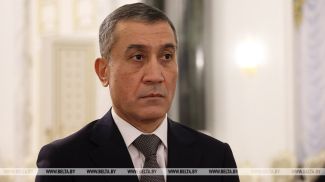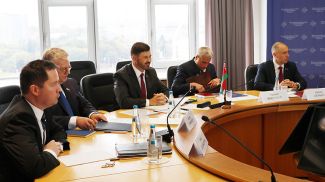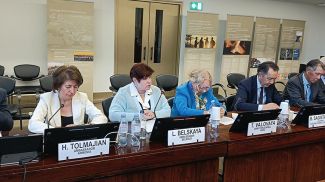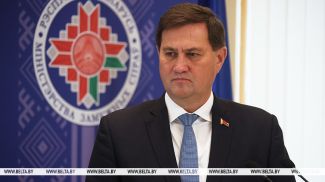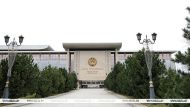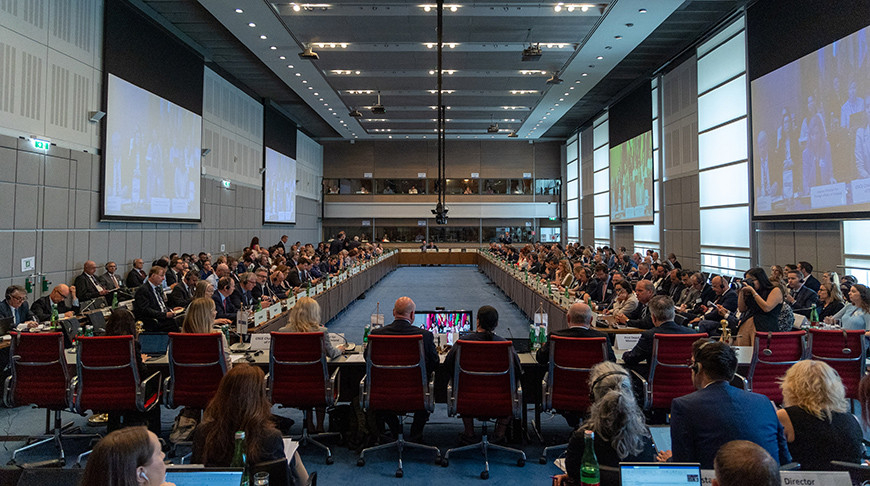
Photos courtesy of OSCE
MINSK, 4 July (BelTA) – At the OSCE Permanent Council meeting in Vienna on 3 July diplomats from Belarus’ Permanent Mission to the OSCE commented on the joint statement of several Western countries that was read out by the head of the German delegation, BelTA learned from Belarus’ Permanent Mission in Vienna.
The Belarusian delegation resolutely rejected false narratives and allegations that distort the real state of things. It presented objective and official information related to the pardoning of individual prisoners in Belarus.
In their speech the Belarusian diplomats said the following: “We were not surprised by the decision of the Western delegations to include this issue in the agenda of today's meeting. Neither were we surprised by their continuous manipulation of human rights issues. We were deeply shocked by something else, i.e. the insensitivity of the German delegation that decided to raise this issue today, on 3 July, on the main holiday of the Belarusian statehood.”
“Today Belarus celebrates Independence Day. This day is sacred for every Belarusian, because it marks the liberation of our capital, Minsk, from the Nazi invaders and the end of the occupation of Belarus by German Nazism during the Great Patriotic War. The head of the German delegation has repeatedly said at the Permanent Council meetings that Germany acknowledges its historical responsibility for the crimes of the Nazi regime and the Holocaust and assured us that Berlin continues to make efforts to preserve the memory of these events and to support the victims of the German aggression and their descendants,” the Belarusian diplomats noted.
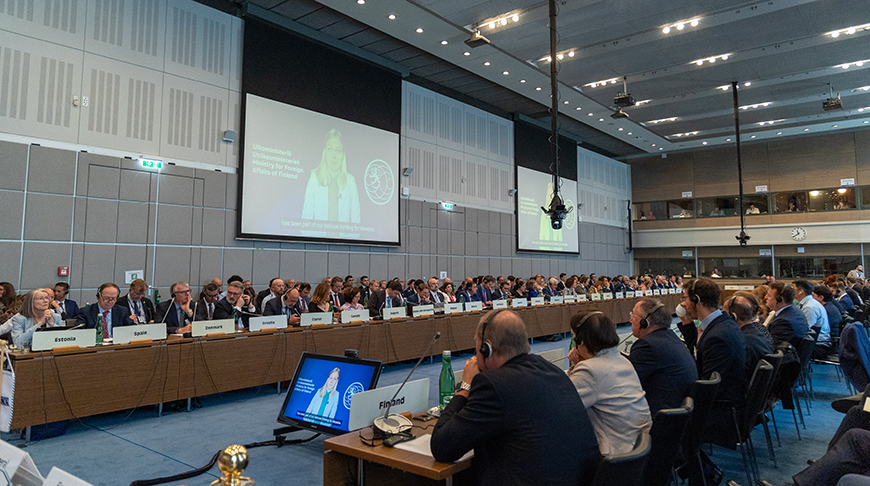
“Yet, today the representative of Germany eloquently showed us how much value they place on these assurances and how cynically Berlin is using current political disagreements with Belarus to explain or justify the German authorities’ denial of its historical responsibility to our country and our citizens. And every time we hear about the intention of the German government to make the Bundeswehr ‘the strongest conventional army in Europe’, we will remind people of the lessons of the last world war and the historical responsibility of the German people for Nazi crimes on our land,” the Belarusian delegation emphasized. “Therefore, today it would be much more appropriate for the representative of Germany to repent for the crimes of German Nazism, rather than to try once again to exploit non-existing problems and to continue a policy of pressure towards countries they disagree with.” The delegation of Belarus repeatedly voiced its position on the issue in question and drew the attention of their colleagues to the fact that the Belarusian criminal law does not have ‘political articles’; thus, any attempts to portray individuals who have broken national laws as ‘political prisoners’ are clearly disingenuous and inappropriate.
“In the run-up to Independence Day, the president of Belarus granted the requests for pardon for 16 convicts who committed various crimes, including extremist ones. Among those pardoned are eight women and eight men. Three of them are over 50 years old. Two have chronic diseases, one is disabled. Nine convicts have minor children. Each pardon is an act of clemency, a chance to return to normal life and become a law-abiding citizen of their country,” the Belarusian diplomats noted.
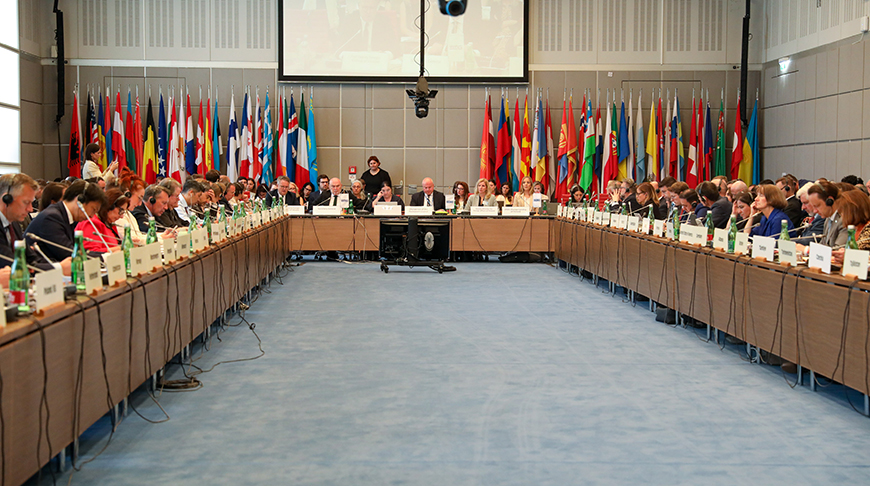
“We emphasize once again that the West's pressure on Belarus is counterproductive and only exacerbates the existing disagreements. We call on our counterparts time and again to stop manipulating human rights issues and to adopt a balanced approach to assessing the internal dynamics in Belarus,” the Belarusian delegation said. “After all, the recent events have shown that politicization of human rights issues is a road to nowhere. Public displays and grandstanding of the type we have witnessed today do not translate into practical solutions; it is classical ‘quiet’ diplomacy and professional and mutually respectful dialogue that result into meaningful progress.”





